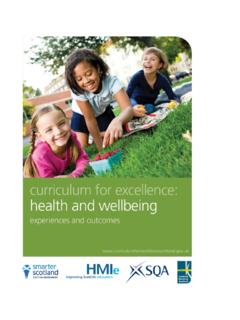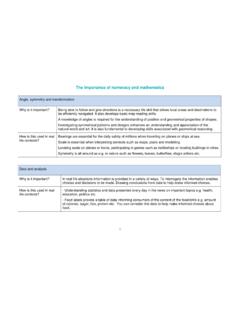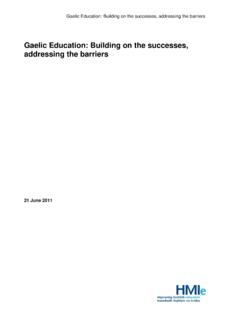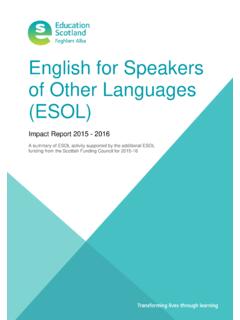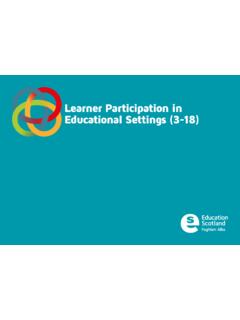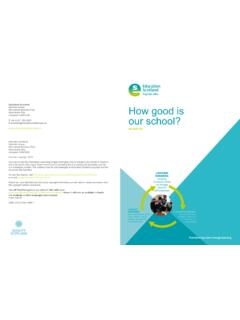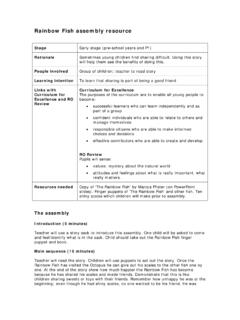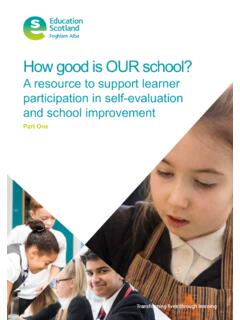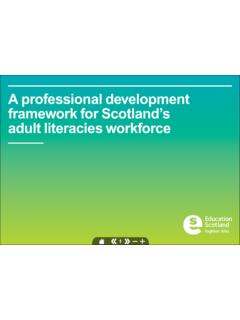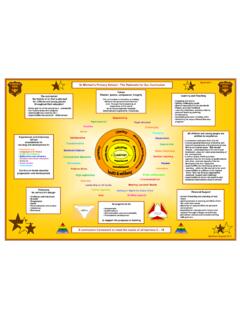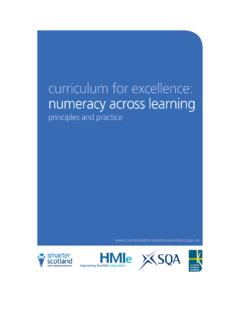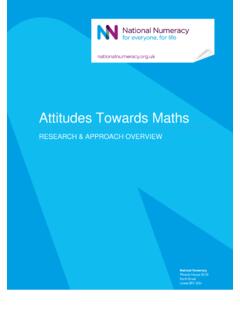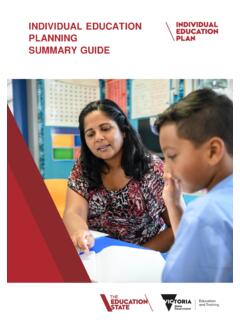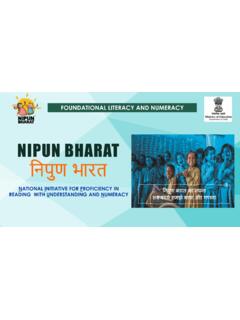Transcription of Numeracy and mathematics - Education Scotland
1 Numeracy and mathematics : experiences and outcomes 1 Numeracy and mathematics experiences and outcomes My learning in mathematics enables me to: develop a secure understanding of the concepts, principles and processes of mathematics and apply these in different contexts, including the world of work engage with more abstract mathematical concepts and develop important new kinds of thinking understand the application of mathematics , its impact on our society past and present, and its potential for the future develop essential Numeracy skills which will allow me to participate fully in society establish firm foundations for further specialist learning understand that successful independent living requires financial awareness.
2 Effective money management, using schedules and other related skills interpret numerical information appropriately and use it to draw conclusions, assess risk, and make reasoned evaluations and informed decisions apply skills and understanding creatively and logically to solve problems, within a variety of contexts appreciate how the imaginative and effective use of technologies can enhance the development of skills and concepts. Numeracy and mathematics : experiences and outcomes 2 Number, money and measure Early First Second Third Fourth Estimation and rounding I am developing a sense of size and amount by observing, exploring, using and communicating with others about things in the world around me1 I can share ideas with others to develop ways of estimating the answer to a calculation or problem, work out the actual answer, then check my solution by comparing it with the estimate.
3 MNU 1-01a . MNU 0-01a I can use my knowledge of rounding to routinely estimate the answer to a problem then, after calculating, decide if my answer is reasonable, sharing my solution with others. MNU 2-01a I can round a number using an appropriate degree of accuracy, having taken into account the context of the problem. MNU 3-01a Having investigated the practical impact of inaccuracy and error, I can use my knowledge of tolerance when choosing the required degree of accuracy to make real-life calculations. MNU 4-01a Number and number processes including addition, subtraction, multiplication, division and negative numbers I have explored numbers, understanding that they represent quantities, and I can use them to count, create sequences and describe order.
4 MNU 0-02a I use practical materials and can count on and back to help me to understand addition and subtraction, recording my ideas and solutions in different ways. MNU 0-03a I have investigated how whole numbers are constructed, can understand the importance of zero within the system and can use my knowledge to explain the link between a digit, its place and its value. MNU 1-02a I can use addition, subtraction, multiplication and division when solving problems, making best use of the mental strategies and written skills I have developed. MNU 1-03a I have extended the range of whole numbers I can work with and having explored how decimal fractions are constructed, can explain the link between a digit, its place and its value.
5 MNU 2-02a Having determined which calculations are needed, I can solve problems involving whole numbers using a range of methods, sharing my approaches and solutions with others. MNU 2-03a I can use a variety of methods to solve number problems in familiar contexts, clearly communicating my processes and solutions. MNU 3-03a Having recognised similarities between new problems and problems I have solved before, I can carry out the necessary calculations to solve problems set in unfamiliar contexts. MNU 4-03a 1 The Numeracy experiences and outcomes , which are the responsibility of all teachers, are shown in italics.
6 Numeracy and mathematics : experiences and outcomes 3 Number, money and measure (continued) Early First Second Third Fourth Number and number processes including addition, subtraction, multiplication, division and negative numbers (continued) I have explored the contexts in which problems involving decimal fractions occur and can solve related problems using a variety of methods. MNU 2-03b Having explored the need for rules for the order of operations in number calculations, I can apply them correctly when solving simple problems. MTH 2-03c I can continue to recall number facts quickly and use them accurately when making calculations.
7 MNU 3-03b I have investigated how introducing brackets to an expression can change the emphasis and can demonstrate my understanding by using the correct order of operations when carrying out calculations. MTH 4-03b I can show my understanding of how the number line extends to include numbers less than zero and have investigated how these numbers occur and are used. MNU 2-04a I can use my understanding of numbers less than zero to solve simple problems in context. MNU 3-04a Numeracy and mathematics : experiences and outcomes 4 Number, money and measure (continued) Early First Second Third Fourth Multiples, factors and primes Having explored the patterns and relationships in multiplication and division, I can investigate and identify the multiples and factors of numbers.
8 MTH 2-05a I have investigated strategies for identifying common multiples and common factors, explaining my ideas to others, and can apply my understanding to solve related problems. MTH 3-05a I can apply my understanding of factors to investigate and identify when a number is prime. MTH 3-05b Powers and roots Having explored the notation and vocabulary associated with whole number powers and the advantages of writing numbers in this form, I can evaluate powers of whole numbers mentally or using technology. MTH 3-06a I have developed my understanding of the relationship between powers and roots and can carry out calculations mentally or using technology to evaluate whole number powers and roots, of any appropriate number.
9 MTH 4-06a Within real-life contexts, I can use scientific notation to express large or small numbers in a more efficient way and can understand and work with numbers written in this form. MTH 4-06b Numeracy and mathematics : experiences and outcomes 5 Number, money and measure (continued) Early First Second Third Fourth Fractions, decimal fractions and percentages including ratio and proportion I can share out a group of items by making smaller groups and can split a whole object into smaller parts. MNU 0-07a Having explored fractions by taking part in practical activities, I can show my understanding of: how a single item can be shared equally the notation and vocabulary associated with fractions where simple fractions lie on the number line.
10 MNU 1-07a Through exploring how groups of items can be shared equally, I can find a fraction of an amount by applying my knowledge of division. MNU 1-07b Through taking part in practical activities including use of pictorial representations, I can demonstrate my understanding of simple fractions which are equivalent. MTH 1-07c I have investigated the everyday contexts in which simple fractions, percentages or decimal fractions are used and can carry out the necessary calculations to solve related problems. MNU 2-07a I can show the equivalent forms of simple fractions, decimal fractions and percentages and can choose my preferred form when solving a problem, explaining my choice of method.
